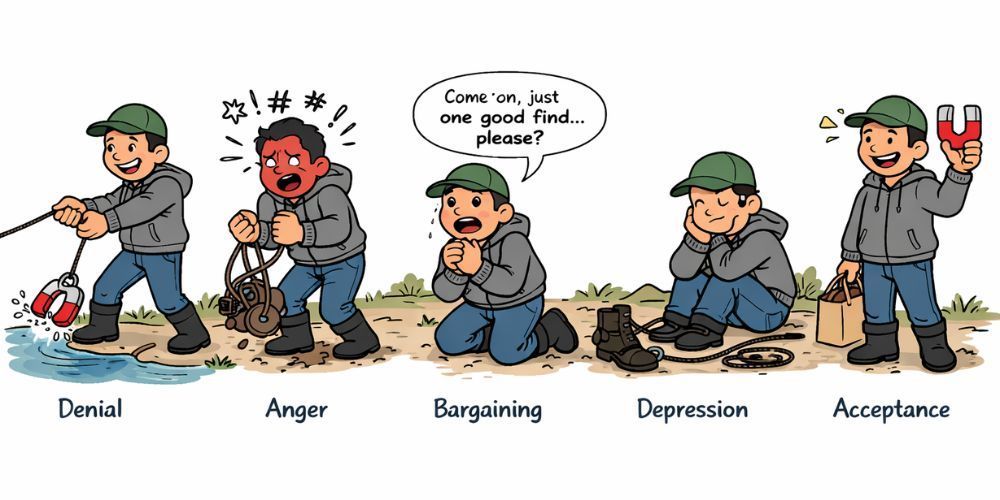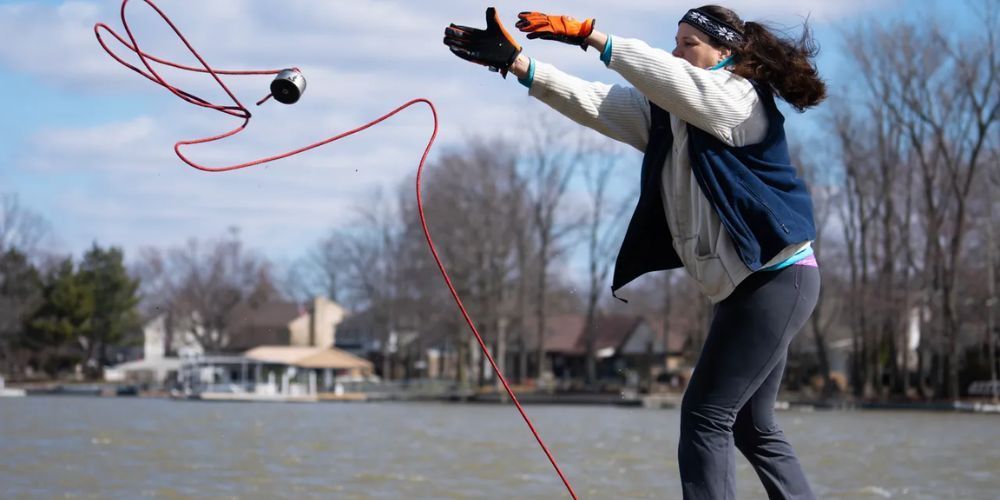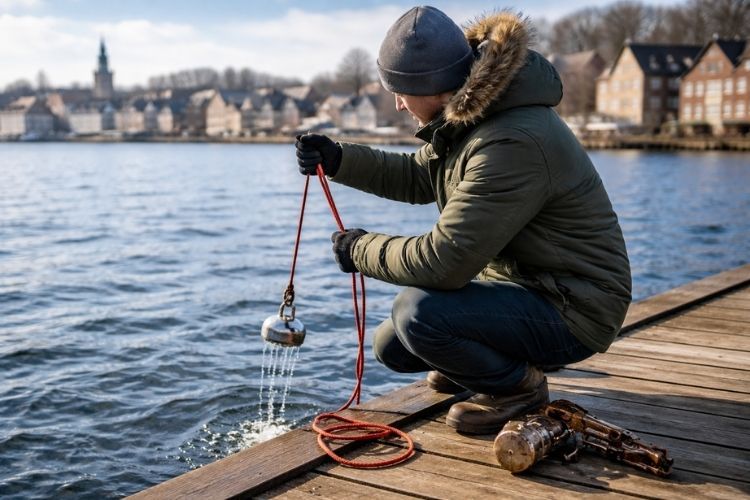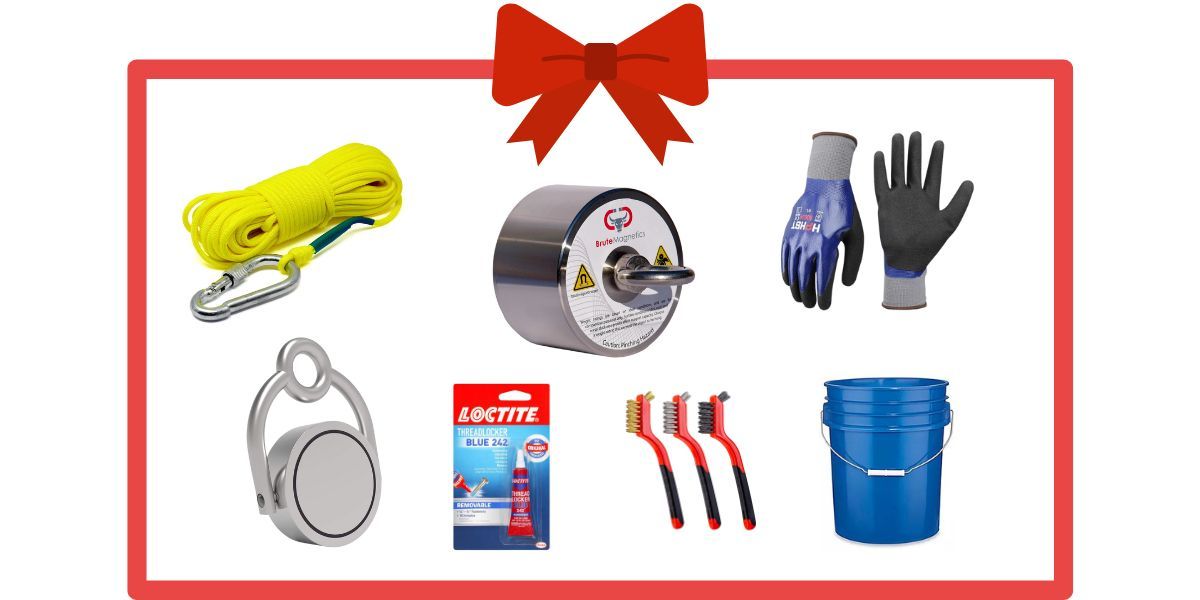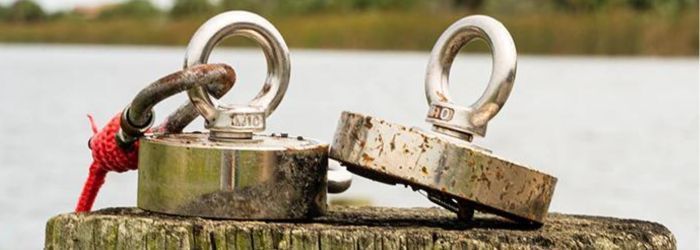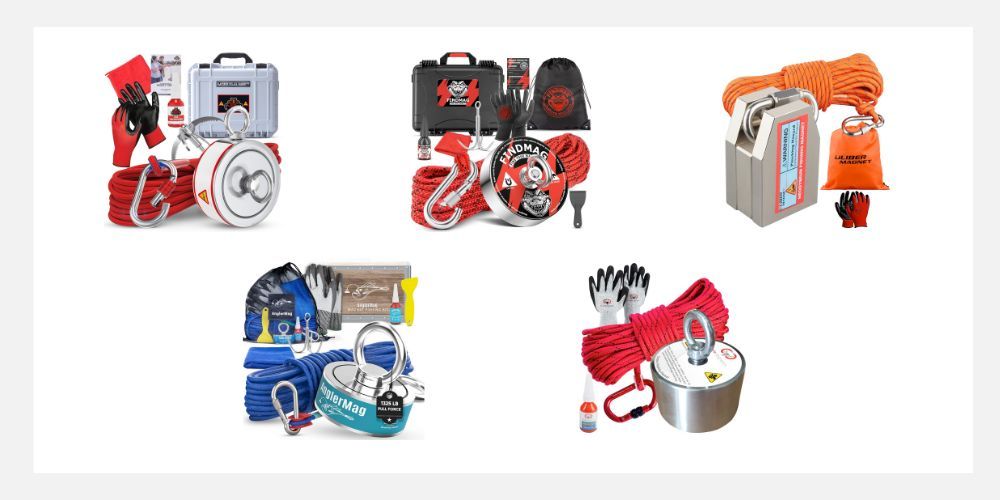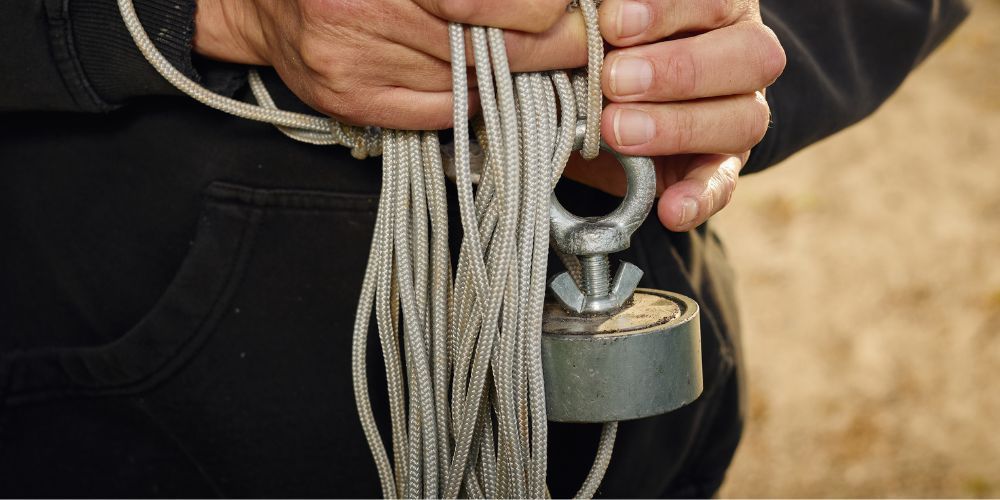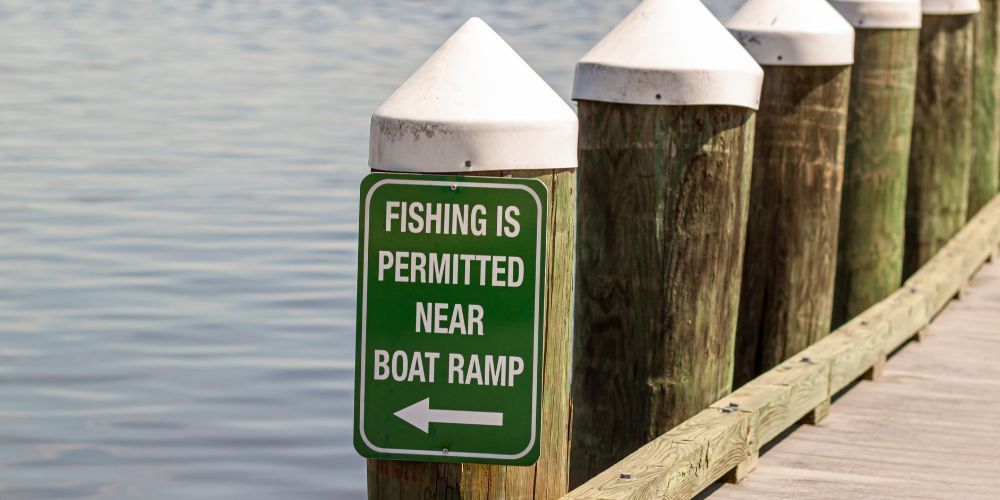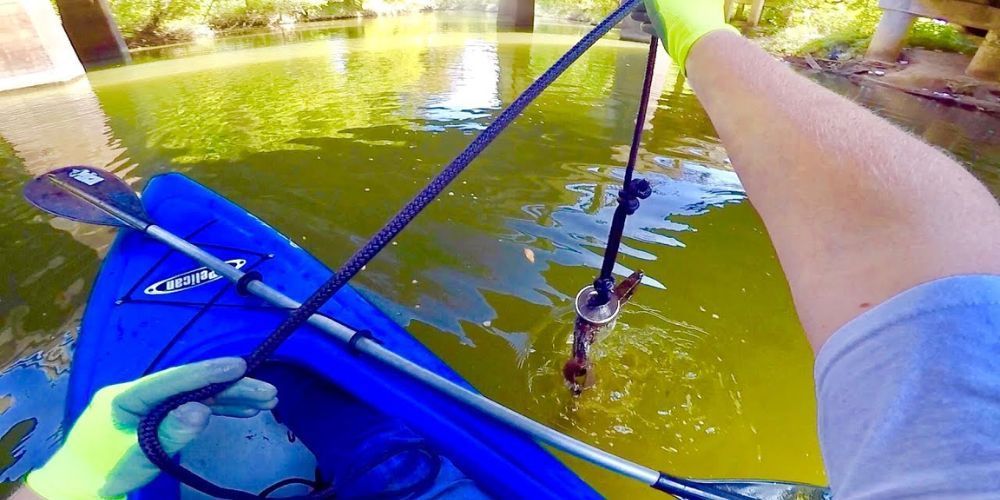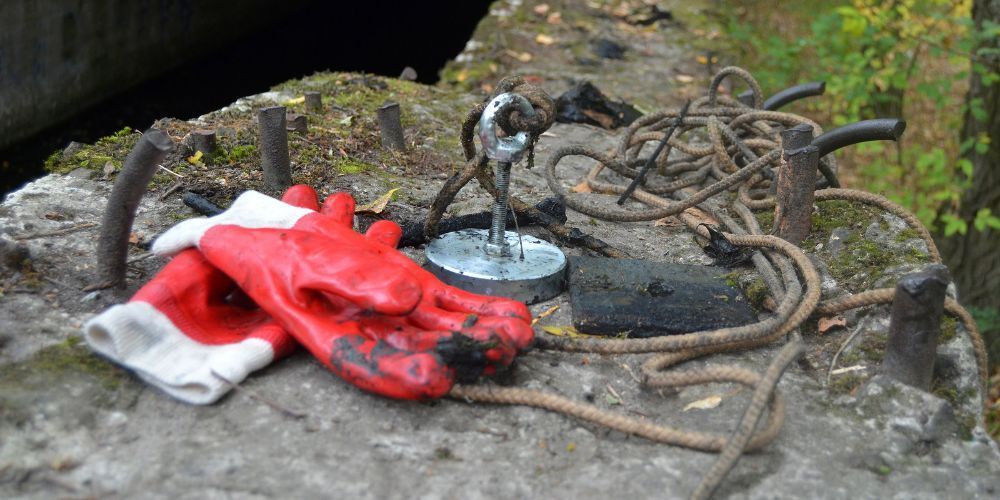How to Dispose of Magnet Fishing Finds: Safety, Legal, and Environmental Considerations
You need to handle your magnet fishing finds with caution. Not only could these items be sharp or hazardous, but they could also pose potential legal or environmental issues if not discarded carefully. Picture the rusted nails, lost jewelry, or forgotten tools hidden beneath a river's calm surface - such treasures need disposal thoughtfully. It's just like leaving a picnic spot cleaner than you found it. Now, let's dive into assessing potential risks associated with magnet fishing.
It is recommended to dispose of magnet fishing finds by properly segregating them as per local regulations. Rusty scrap metal can be recycled, while potentially valuable items like jewelry and antiques should be appraised for potential restoration or resale. Weapons found should be treated with caution and reported to the appropriate authorities. Always prioritize safety and legality when disposing of magnet fishing finds.
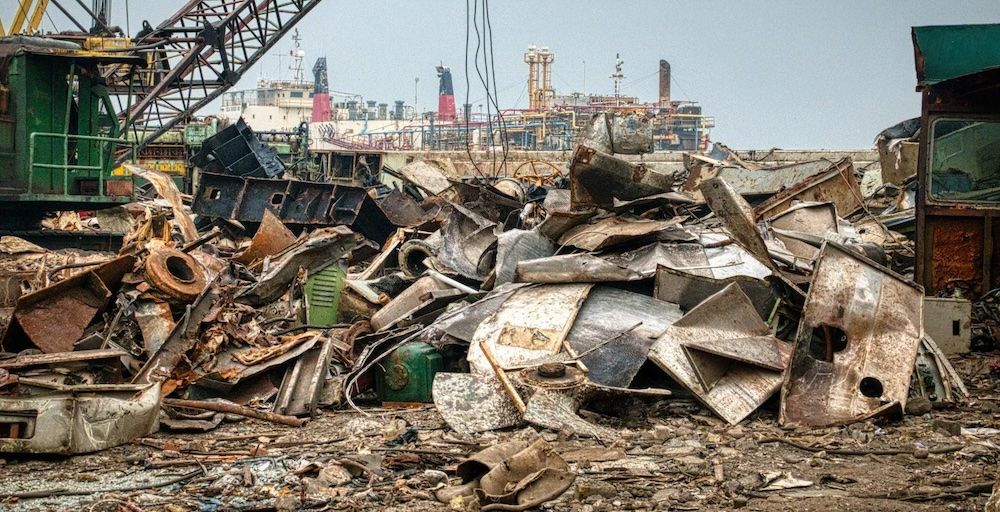
The Safety Precautions for Magnet Fishing
Before engaging in the thrill of magnet fishing, it's crucial to assess your surroundings and take necessary precautions. The first critical step is to undertake a thorough risk assessment of the location where you plan to magnet fish. Look around and be vigilant for potential hazards that could pose a threat to your safety, such as sharp objects lurking beneath the water's surface, deep or fast-moving water, and unstable riverbanks.
Once you've scoped out the location and deemed it safe, it's time to think about protecting yourself with the right gear. This is where Personal Protective Equipment (PPE) comes into play. Investing in a good pair of
gloves will shield your hands from sharp or rusty objects that may emerge from the water. Additionally, wearing sturdy footwear with reliable grip can minimize the risk of slips and falls, especially when retrieving heavy or awkward items.
Handling equipment safely also plays a crucial role in ensuring both personal safety and the longevity of your gear. Use a
carabiner or a safety lock to secure the rope connected to the
magnet to a fixed point, helping prevent accidental entanglement or loss of the magnet in the water. Maintaining awareness of your surroundings is vital to avoid accidental contact with the magnet, which can result in injuries.
Now that we've established the primary safety precautions, let's dive deeper into conducting a thorough risk assessment before engaging in magnet fishing.
As we venture further into handling
magnet fishing finds with care and responsibility, let's explore additional measures and considerations to ensure safety, legality, and environmental consciousness.
Advice on Handling Magnet Fishing Finds
Once you've successfully retrieved an item, the first thing to do is clean off any excess mud and water. This not only helps prevent further rusting but also makes it easier to assess the object's condition. Some items may not be in the best shape when they come out of the water, so giving them a thorough rinse can reveal more details about their state.
When rinsing off the find, it's important to use gentle methods to avoid causing damage. For smaller items, consider using a soft-bristled brush or a cloth to remove dirt without scratching the surface. For larger items, a gentle spray with a hose might suffice.
Handle with Care
It's crucial to handle magnet fishing finds with utmost care. Even after being removed from the water, these objects may still pose risks due to sharp edges or potential dangers like hooks or other protruding parts. It's wise to wear protective gloves and carefully inspect the item before handling it extensively.
For instance, if you've pulled up an old fishing hook, ensure that it is thoroughly checked for any entangled lines or sharp points that might cause injury.
Furthermore, larger or heavier objects should be handled cautiously to avoid strain or injury. If it's too heavy to lift alone, consider enlisting assistance or using appropriate tools to move and handle it safely.
It's important to remember that some items may have been underwater for a long time and could be fragile in unexpected ways. Always approach magnet fishing finds with care and attention to detail to ensure your safety and the preservation of the item itself.
By taking these careful steps when handling magnet fishing finds, you not only ensure your personal safety but also the preservation of the items you've worked hard to retrieve.
Procedures for Disposing of Scrap Metal
Once you've gathered your magnet fishing finds, it's important to sort through the scrap metal and separate any items that can be recycled. When you recycle, you're not only disposing of the items responsibly, but you're also contributing to sustainability. By recycling metal objects from your magnet fishing haul, you're reducing environmental impact and aiding in the conservation of natural resources.
Metal objects are durable materials that retain their quality even after they're melted down and remade into new products. This makes them ideal for recycling. Many local recycling centers or scrap yards accept metal objects including iron, steel, copper, aluminum, and brass. Before bringing your scrap metal to a recycling facility, it's essential to categorize and prepare your materials.
Separate Recyclable Items
Sorting through your scrap metal finds isn't just about tidying up—it's about making an important environmental contribution. Start by separating the different types of metals. Iron, steel, and aluminum are some of the most commonly found metals during magnet fishing. It's crucial to segregate the metals as they have different recycling processes.
For example:
- Iron and steel are often magnetic and will stick to a magnet.
- Aluminum is lightweight and doesn't stick to a magnet.
So, using a
magnet can help you distinguish between iron or steel items and those made from aluminum or other non-magnetic metals. Separating these metals not only makes the recycling process more efficient but also ensures that each item is processed correctly according to its material type.
Recycling Drop-off
Once you've sorted and prepared your scrap metal items for recycling, it's time to identify the nearest metal recycling facility or scrap yard. Reusing metal reduces the need for extracting and processing new raw materials, resulting in reduced greenhouse gas emissions and less stress on our environment.
For instance, suppose you've collected a rusted bicycle frame or some old iron tools during your magnet fishing trip. By taking these items to a recycling center instead of letting them sit in a landfill, you're playing a direct role in environmental preservation.
If you're unsure about where to find a nearby metal recycling facility or if they accept specific types of metal objects, contacting your local waste management office can help provide guidance on responsible disposal.
In conclusion, carefully sorting and delivering your items to a recycling center not only helps preserve the environment but also promotes the sustainable reuse of valuable resources found during your magnet fishing expeditions.
Now that you know how to responsibly handle general magnet fishing finds, let's delve into dealing with potentially hazardous discoveries in your magnetic treasures without risking safety or breaking any laws.
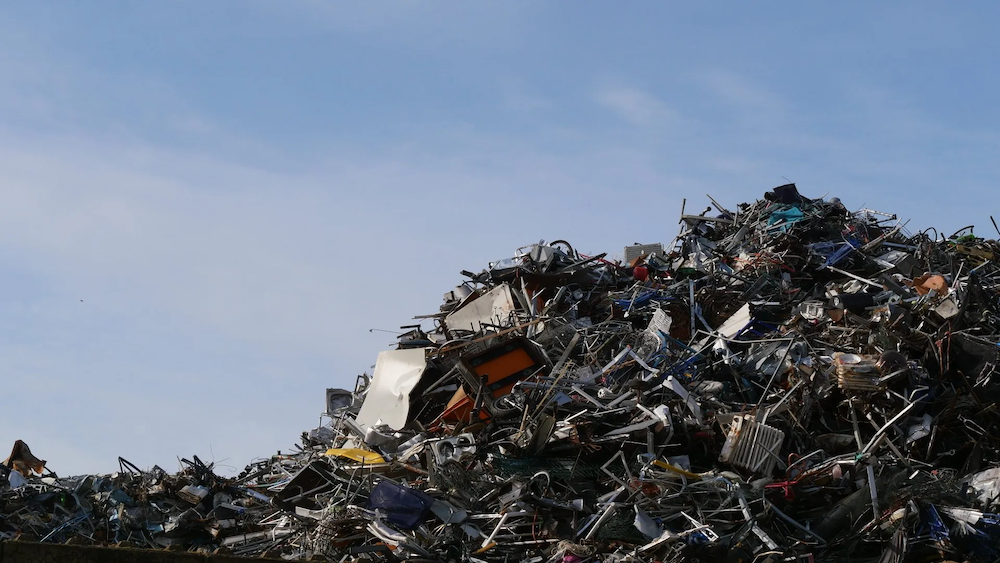
Dealing with Hazardous Magnet Fishing Finds
Magnet fishing can yield a wide array of items, some of which pose potential hazards if not handled properly. Hazardous materials like old batteries or chemical containers can sometimes be pulled up with the use of powerful magnets. When identifying these items, it's crucial to exercise extreme caution and handle them following appropriate safety measures.
Handling Hazardous Items Safely
It's important to approach hazardous items with care. For instance, when dealing with old batteries, protective equipment such as gloves and eye protection should be used to prevent potential exposure to harmful substances. Additionally, sharp metal objects should be handled cautiously to avoid injuries.
Suppose you come across an old chemical container while magnet fishing. It's critical to avoid direct contact and carefully assess the condition of the container to prevent leaks or spills. Local environmental agencies or waste management authorities can provide detailed guidelines on how to safely handle and dispose of these items.
Seeking Professional Guidance For items that necessitate specialized disposal methods, such as certain chemicals or other hazardous materials, it is advisable to reach out to local waste management or environmental agencies for expert guidance. These organizations can offer valuable insights on how to handle and dispose of the items in compliance with local regulations.
Handling hazardous magnet fishing finds requires a meticulous approach to ensure personal safety and environmental responsibility. By being aware of the potential risks associated with certain items and seeking professional advice when necessary, magnet fishers can contribute to the safe and responsible disposal of hazardous materials encountered during their endeavors.
Now that we've covered safety considerations for disposing of magnet fishing finds, let's shift our focus to understand the legal implications associated with these unique discoveries.
Legal Implications of Magnet Fishing Finds
Magnet fishing can be an enriching and exciting pastime, but it's crucial to recognize that different locations may have specific laws and regulations governing these activities. The first step in ensuring compliance is to conduct thorough research on the local laws and regulations that apply to magnet fishing in your area. Some places may have restrictions on where magnet fishing can be practiced or may require permits for certain bodies of water.
For example, the UK has laws in place regarding magnet fishing. The Canal & River Trust prohibits magnet fishing on their property, while in the USA, there are currently no laws or restrictions that ban magnet fishing.
Adhering to these regulations not only safeguards you from potential legal repercussions but also demonstrates respect for the environment and local communities. It ensures that your magnet fishing activities align with the laws set forth by the authorities, contributing to a responsible and considerate approach to this hobby.
Reporting Artifact Finds
Moreover, as a responsible participant in magnet fishing, it's important to understand the significance of reporting any historically significant or potentially dangerous items that you come across during your expeditions. This responsibility is not just guided by ethical considerations but is often a legal requirement as well.
If you unearth artifacts of historical or cultural importance or encounter potentially hazardous items such as
firearms, explosives, or weapons, reporting them to the appropriate local authorities is imperative. In some cases, failure to report such findings can constitute a breach of the law.
In the UK, for instance, while magnet fishing is generally allowed on private property with proper authorization, discovering certain items may require compliance with specific legal procedures. The Portable Antiquities Scheme aims to record archaeological objects discovered by members of the public and encourages individuals to report their findings in such instances.
By promptly reporting these discoveries, you contribute to preserving historical heritage, ensuring public safety, and fulfilling your legal obligations as a responsible participant in this engaging hobby.
Understanding and adhering to local laws while magnet fishing is not just about avoiding penalties; it's about demonstrating mindfulness and respect for your surroundings and community while reveling in this adventurous pursuit.
Environmental Impacts of Magnet Fishing
Magnet fishing appears to be a noble hobby - pulling harmful materials out of the water, right? Well, it's true that magnet fishing has some real environmental benefits. Pulling metal objects from water bodies helps reduce potentially dangerous metal waste in aquatic environments, which improves water quality and lowers the risk of toxic substances leaching into the water.
Impact on Aquatic Ecosystems
Environmental advocates also point out that magnet fishing can help promote the equilibrium of aquatic ecosystems by removing metal pollutants and promoting the growth of native flora and fauna. It reduces metal waste in rivers by approximately 30%, making a discernible positive difference.
However, it's crucial to emphasize that magnet fishing requires careful execution to avoid causing ecological harm. Disturbing sediment layers during the retrieval process could release heavy metals or other pollutants, potentially harming aquatic life.
Responsible Practices
To ensure that magnet fishing remains an eco-friendly activity, it's important for enthusiasts to follow responsible practices. This involves avoiding sensitive ecological areas, properly disposing of retrieved items, and respecting historical artifacts and private property. This dedication not only protects natural habitats but also fosters a sense of eco-consciousness within the magnet fishing community.
Imagine participating in a magnet fishing clean-up event. Not only are you disposing of finds responsibly, but you're contributing to the conservation of natural habitats and waterways. It's a communal effort towards maintaining the beauty and balance of our natural world - something we should all strive to be a part of.
Now that we've explored the nuanced environmental impacts of magnet fishing, let's delve deeper into practical strategies for disposing of finds in a way that prioritizes safety and ecological responsibility. Understanding the environmental implications of this growing hobby is key to ensuring its long-term sustainability. By adopting responsible disposal practices, enthusiasts can actively contribute to the preservation of our aquatic ecosystems.
What should I do with the junk I find while magnet fishing?
When it comes to disposing of the junk found while magnet fishing, it is essential to follow proper environmental guidelines. Firstly, separate the items into categories such as metal, plastic, and glass. Next, contact your local recycling center to inquire about their acceptance of these materials. Many centers have specialized programs for unusual items like those found during magnet fishing. If the recycling center cannot accept certain items, consider reaching out to local artists or craftsmen who may be interested in repurposing them for their projects. Additionally, some communities organize annual clean-up events where you can drop off your findings for proper disposal. By taking these steps, you can ensure that the junk you find while magnet fishing is disposed of responsibly and contributes to a cleaner environment.
Can I throw magnet fishing finds in the regular trash?
Absolutely! When it comes to disposing of magnet fishing finds, it is generally recommended to throw them in the regular trash. However, there are a few important considerations to keep in mind. Firstly, make sure that the items you have found are not hazardous or potentially harmful. If you come across any sharp objects or chemicals, it is best to contact your local waste management facility for proper disposal instructions. Additionally, if you have discovered any historical artifacts or valuable items, it is advisable to consult with local authorities or a professional archaeologist to ensure their preservation and potential cultural significance. Otherwise, feel free to dispose of your magnet fishing finds responsibly by placing them in the regular trash bin.
Are there special disposal requirements for magnet fishing finds?
Yes, there are indeed special disposal requirements for magnet fishing finds. Due to the unique nature of these finds, which often include metal objects and debris from bodies of water, it is important to handle them with care and dispose of them properly. The first step is to separate any valuable or historical items that may have been found, as these can be preserved or donated to museums or local historical societies. As for the remaining non-valuable items, they should be taken to designated recycling centers that specialize in processing metals recovered from bodies of water. These centers have the necessary equipment and expertise to safely handle and recycle these materials, ensuring minimal environmental impact. It is crucial to follow these disposal requirements to maintain the ecological balance of our waterways and protect aquatic life.
How can I determine if a magnet fishing find is hazardous waste?
Determining if a magnet fishing find is hazardous waste requires careful examination and consideration of various factors. Firstly, assess the condition of the object – if it appears corroded, leaking, or emitting strong odors, it may indicate the presence of hazardous substances. Next, consult local environmental regulations and guidelines to identify specific items that are classified as hazardous waste. Additionally, consider conducting a chemical analysis or seeking professional assistance from experts in waste management to accurately determine the potential hazards associated with the find. Remember, safety should always be a priority when dealing with potentially hazardous materials, so it is advisable to err on the side of caution and seek expert advice when in doubt.
Where can I find local recycling centers for magnet fishing finds?
When it comes to disposing of magnet fishing finds, it's important to prioritize environmental responsibility. While there are no specific recycling centers exclusively dedicated to magnet fishing finds, there are alternative options available. One approach is to contact your local municipal waste management department or recycling center and inquire about their policies for disposing of metal objects. They may have designated areas or procedures for handling such items. Additionally, some scrap metal yards may be willing to accept magnet fishing finds for recycling purposes. It's always a good idea to reach out and explore these options in order to ensure proper disposal and contribute to a sustainable future.
What are some common items found during magnet fishing that require special disposal?
During magnet fishing, a popular hobby where magnets are used to retrieve metallic objects from bodies of water, several common items may be found that require special disposal. One such item is old ammunition or firearms. When these items are discovered, it is crucial to contact local law enforcement immediately, as they possess the necessary expertise and protocols for their safe disposal. Another common find is discarded batteries, which can be harmful to the environment if not disposed of properly. In such cases, it is recommended to bring them to designated battery recycling centers or contact local waste management authorities for guidance on proper disposal methods. Lastly, magnet fishers often come across rusted metal objects that may contain hazardous substances like lead-based paint or asbestos.
Are there any legal restrictions on how to dispose of magnet fishing finds?
Absolutely! When it comes to disposing of magnet fishing finds, there are indeed legal restrictions in place. In most regions, the disposal of these finds falls under the jurisdiction of local environmental agencies. These agencies typically have guidelines and regulations in place to ensure that any potentially hazardous or environmentally damaging items are disposed of properly. It is generally recommended to contact your local environmental agency or waste management department for specific instructions on how to dispose of magnet fishing finds in a safe and responsible manner. They will be able to provide you with information on designated drop-off points, recycling options, or even arrange for specialized disposal services if necessary. Remember, it's always better to err on the side of caution and follow the proper procedures to protect both the environment and yourself.
Can I donate magnet fishing finds to charity or museums?
Absolutely! Donating magnet fishing finds to charity or museums is a wonderful idea. Many organizations, especially museums and historical societies, are always on the lookout for unique artifacts and objects that can help tell the story of our past. By donating your finds, you not only contribute to preserving history but also provide valuable educational resources for future generations. It's important, however, to ensure that the items you donate are properly identified and documented, so experts can determine their historical significance. So, go ahead and reach out to local charities or museums to inquire about their donation policies and procedures.
What are the potential environmental impacts of improperly disposing magnet fishing finds?
Improperly disposing of magnet fishing finds can have several potential environmental impacts. Firstly, if the finds contain metal objects such as nails, screws, or other sharp items, they can pose a threat to wildlife and marine organisms by causing injuries or entanglement. Secondly, if the finds include non-biodegradable materials like plastic or glass, they can contribute to pollution and littering in aquatic ecosystems. Additionally, certain metals found through magnet fishing, such as lead or mercury, can leach into the surrounding water and soil, leading to contamination and potentially harming both aquatic life and nearby vegetation. Therefore, it is crucial to properly dispose of magnet fishing finds to mitigate these potential environmental risks.
How can I safely handle and transport magnet fishing finds for disposal?
When it comes to safely handling and transporting magnet fishing finds for disposal, there are a few key steps to follow. First, ensure that you have a sturdy and secure container to hold the items. A heavy-duty plastic bin with a tight-fitting lid works well. Next, it's important to clean and dry the finds thoroughly before placing them in the container. This helps prevent any potential contamination or odors during transportation. To further ensure safety, consider using gloves and protective eyewear while handling the items. Finally, when transporting the container, securely fasten it in your vehicle to prevent any spills or accidents. By following these steps, you can safely handle and transport magnet fishing finds for disposal without any issues.
Author: Will Flaiz


